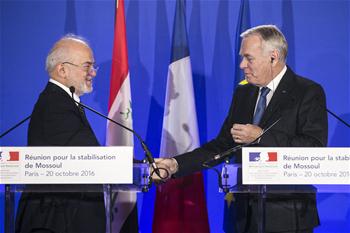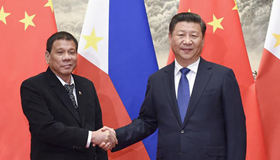QUITO, Oct. 20 (Xinhua) -- As the United Nations (UN) closed its third Conference on Housing and Sustainable Urban Development (Habitat III) here Thursday, it could be considered a major achievement with 142 countries pledging to build more prosperous and inclusive cities.
A UN statement released on Thursday said that world leaders had committed to offering basic services for their people, ensuring that citizens have equal access to opportunities and improved air quality, among other topics.
According to the statement, the approval of the New Urban Agenda marks a paradigm shift in urbanization.
The conference's Secretary-General Joan Clos was quoted as saying that data showed urbanization in the last 20 years (since Habitat II in 1996) had not gone well.
He claimed that the problems of environmental sustainability had not been well addressed, urban inequality had grown and cities had grown ever larger.
Clos addressed this issue directly at the closing ceremony. "As 70 percent of greenhouse gas emissions are related to urbanization, you understand how crucial urbanization is to climate change," he said.
"We need to approach urbanization not as a cost but as an investment. The cost of urbanization is minimal compared to the value it can generate. The journey to a sustainable urban future has just begun," he said.
Highlighting that Habitat III heavily focused on the role to be played by local governments, Clos stated that "The New Urban Agenda calls for a new and reinforced cooperation between central and local governments."
According to Clos, central governments establish the rules of the game, especially in terms of urban legislation and municipal finance, as well as overseeing policies that determine quality of life, such as health and education.
However, he explained that local authorities "have the responsibility of urbanism, laying out the fabric of the city, controlling, managing and supervising it. They are also responsible for the management of local basic services."
"The linkage between central governments and local authorities is one of the most innovative specifications that this conference has reminded us all of. Neither central governments or local governments alone can address all the problems of urbanization," continued Clos.
Speaking at the closing ceremony, the Mayor of Quito Mauricio Rodas seemed ready to take up the challenge. "For the New Urban Agenda ... we local governments are assuming (the reponsibility)," Rodas said.
"We will work hard to make the New Urban Agenda a reality, to make our cities places where no one is left behind. We want to make our cities to be places that foster economic growth, with major respect for social inclusion and for the environment," he said.










